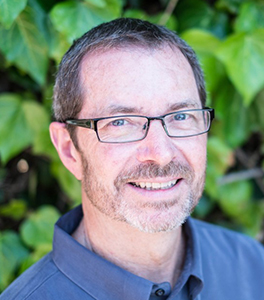OCD Treatment Tips #2: The Power of Underlying Beliefs in OCD


(Part two of a continuing series on the treatment of OCD from one of Southern California’s OCD experts)
When Damian was a student in college he took a biology class where he learned about “mutagens” – chemical substances that could possibly cause mutations in the human body and thus cause cancers to develop. He graduated and went on to go on to have a successful career in business. One day, after he needed to have his house treated for termites, he suddenly remembered his time in the biology lab and he began to think and worry about chemical mutagens. He began to worry that the insecticides that had been used on his house might be mutagenic and cause cancer. After the termite treatment, he spent days cleaning items in the house with cleansers and then he would need to decontaminate himself with long systematic showers. He would use gloves to clean but inevitably there would be “breakthrough contamination,” when he would inadvertently touch or bump into something that “just might” be contaminated. “I didn’t feel I could take the chance, so I felt I needed to wash and wash.” He began to worry about other chemicals, like cleaning solutions, insecticides (such as cans of Raid and ant traps under the kitchen sink), and fertilizers in the garden. He tried to avoid their use and to try to use “natural” cleansers and insecticides whenever he could. Yet, he was afraid of those too – “What if those too cause mutations? They haven’t been studied. We just don’t know.” Damian would wash for hours at a time trying to disinfect himself of potential mutagens. His life got narrower and narrower as he spent a large portion of every day fighting possible contaminants.
The law of “The Non-Dilution of Contaminants through Space and Time”
In working with Damian on his OCD, it became clear that he (and many others with “contamination” OCD) hold the belief in the “Law of the Non-Dilution of Contaminants through Space and Time.” This is the belief that, once something is contaminated, no amount of time alone causes the contaminant to lose its potency. So, when Damian found his college yearbook one day cleaning out a box in his garage, he recoiled from it, dropped it, and frantically initiated washing – even though it had been more than 15 years since he graduated. “I felt that the year book, because it was from that school, was potentially covered with mutagens and it seemed to me that it didn’t matter how much time had elapsed, it was still dangerous!”
The other part of this belief is that no matter how long the chain of contamination is, contaminants remain undiminished. Damian would “track” the movement of the contaminating substances. For example, one day Damian was with a friend when his friend filled his car’s tank with gasoline. He watched anxiously as his friend pumped gas with his hand, used the same hand to start his car with his key, to open the door of the friend’s house with the same set of keys, opening the refrigerator with his hand, and offering Damian a bottle of cold water with, yes, that same hand that 15 minutes before had pumped gas. Damian refused the water, feeling that the bottle would be as contaminated as the gas pump handle. There was a belief that, no matter how long the chain, contamination does not diminish – that contamination transfers to the next surface (for example, from the keys to the handle of the refrigerator) without losing any of the cells or atoms of the contaminant along the way. Contamination seems infinitely transferable, so even if Damian’s friend had touched 1,000 things after pumping gas, the last thing that he touched would be JUST AS CONTAMINATED as the gas pump handle.
OCD beliefs need to undergo challenge
Yet, mercifully, it doesn’t work like this in nature. This belief contradicts the science of natural law. The Second Law of Thermodynamics states that any isolated system will always tend toward disorder, i.e., EVERYTHING BREAKS DOWN AND DECOMPOSES, including anything that we might call contamination or “mutagens.” Through time or through the touching of surfaces, things erode. When Damian came into therapy for his OCD, he was able to re-examine and challenge his belief in the unchanging nature of contamination. He was able to do this partly through research on his own and partly through careful questioning in the therapy. This work (the “cognitive” part of Cognitive Behavioral Therapy) helped set the stage for his being willing to embark upon the critical next part of OCD treatment where he would actively test out the anxiety beliefs in a process called “Exposure and Response Prevention.”
What is the OCD Treatment Takeaway?
One of the most important features of CBT treatment for Obsessive Compulsive Disorder is helping educate the person about the reality of their fears and helping them challenge the thinking that supports the OCD behavior. This sets the stage for the behavioral challenge of the OCD beliefs.
If you would like to discuss how OCD treatment can be personalized for you or learn more about our offerings at Cognitive Behavioral Therapies of Southern California, contact us today.

Author Dr. Rodney Boone is the Founder and Director of CBT SoCal, has taught as a former member of the faculty in UCLA’s Department of Psychiatry, and practices in Glendale and Torrance, CA.

Alexandria Martinez
It is interesting to read that some people with OCD track a contaminate. This could be really debilitating for someone to constantly feel compelled to track these things. A good friend of mine who is looking into OCD treatment might like knowing this.
Roger Middleton
I liked that you had mentioned that OCD beliefs need to be challenged to break them down. My wife struggles with Obsessive Compulsive Disorder and we’ve been wanting to make sure she gets over it. I’ll have to start looking around for a professional that can help her challenge these beliefs and get her the OCD treatment that she needs.
Cognitive Behavior Therapy Center
OCD can certainly be very debilitating. Please feel free to share this or other articles on our blog if they can be of help to your friend Alexandria.
Martin Hsia
I hope she connects with the right help Roger. Yes, the beliefs associated with OCD need to be challenged, though perhaps even more importantly, the behaviors need to be challenged (through Exposure with Response Prevention) as well to really disprove the unwanted fears and doubts.